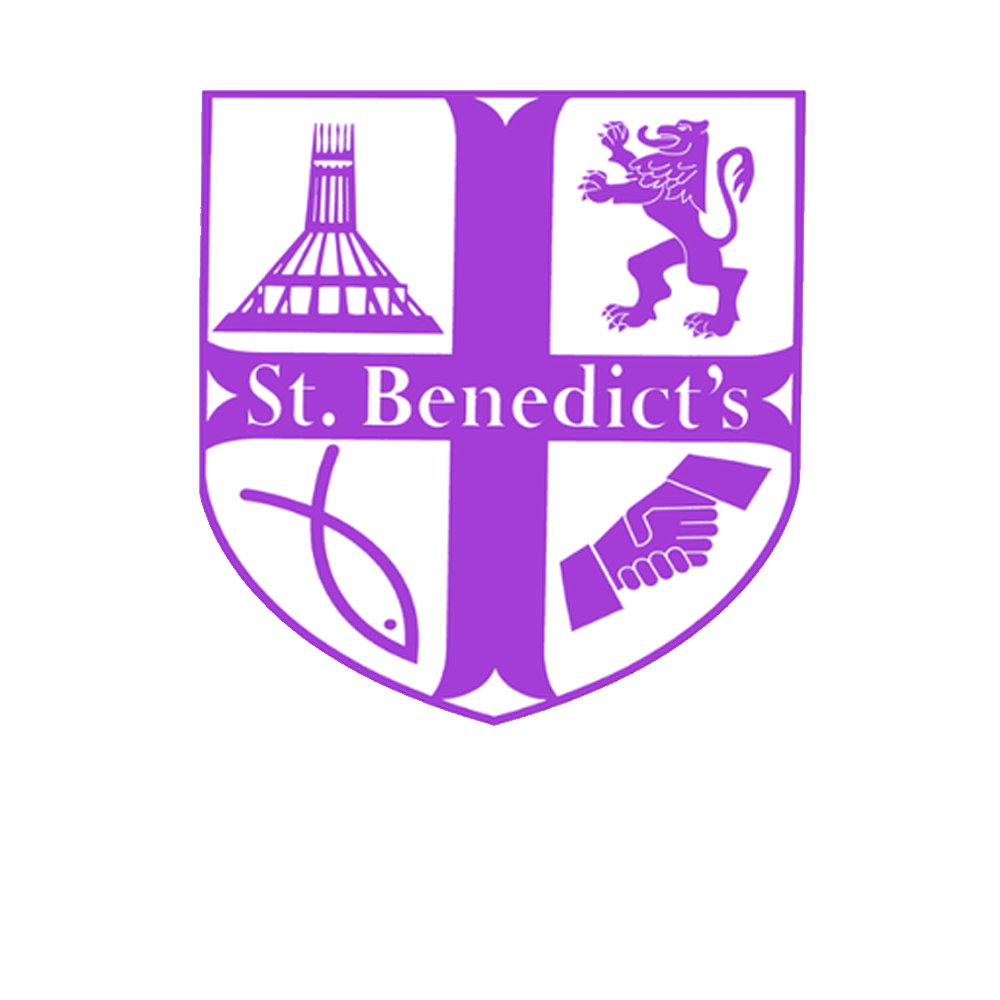Spanish Curriculum
Intent
At St. Benedict’s Catholic Primary School, we place great value upon the importance of early language learning and we believe that, in today’s international and multicultural society, it is essential that our children develop skills and attitudes which enable them to communicate with, understand and respect other cultures. Our intent is to provide broad linguistic and cultural experiences for our pupils that enable them to foster a love of languages and to develop their communication skills in the four key areas of language learning: speaking, listening, reading and writing. We endeavour to broaden the cultural awareness of our pupils, to create linguists who enjoy learning languages and who can express themselves confidently in our target language of Spanish.
Language lies at the heart of ideas about individual identity and community. We believe that learning a language, in our case Spanish, supports and celebrates the international dimension, liberates children from insularity, fosters pupils’ curiosity and deepens their understanding of the world. Children learn that our world is made up of people from different cultures and start to develop tolerance and respect for others. Thus, Spanish at St. Benedict’s promotes the concept of positive citizenship and community cohesion with other communities on both a local to global scale.
Implementation
At St. Benedict’s, we follow the Scheme of Work for Spanish from School Improvement Liverpool which demonstrates clear progression across Years 3-6. All pupils in Key Stage 2 are taught Spanish by a Foreign Language Tutor (FLT) who is a native level speaker. The FLT represents a valuable source of cultural and linguistic capital that enriches the language learning experience of the children. FLTs can stimulate genuine communication, increase motivation for language-learning and encourage cross-cultural understanding.
Children in Key Stage 2 receive one thirty-minute session with our FLT each week. Our aims are to fulfil the requirements of the National Curriculum for languages; providing a broad and balanced curriculum that provides excitement, enjoyment and challenge for children, helping to create enthusiastic learners and to develop positive attitudes to language learning throughout life.
The National Curriculum for languages aims to ensure that all pupils:
- Understand and respond to spoken and written language from a variety of authentic sources
- Speak with increasing confidence, fluency and spontaneity, finding ways of communicating what they want to say, including through discussion and asking questions, and continually improving the accuracy of their pronunciation and intonation
- Can write at varying length, for different purposes and audiences, using the variety of grammatical structures that they have learnt
- Discover and develop an appreciation of a range of writing in the language studied.
The National Curriculum states that pupils should be taught to:
- Listen attentively to spoken language and show understanding by joining in and responding
- Explore the patterns and sounds of language through songs and rhymes and link the spelling, sound and meaning of words
- Engage in conversations; ask and answer questions; express opinions and respond to those of others; seek clarification and help
- Speak in sentences, using familiar vocabulary, phrases and basic language structures § develop accurate pronunciation and intonation so that others understand when they are reading aloud or using familiar words and phrases
- Present ideas and information orally to a range of audiences
- Read carefully and show understanding of words, phrases and simple writing
- Appreciate stories, songs, poems and rhymes in the language
- Broaden their vocabulary and develop their ability to understand new words that are introduced into familiar written material, including through using a dictionary
- Write phrases from memory, and adapt these to create new sentences, to express ideas clearly
- Describe people, places, things and actions orally and in writing
- Understand basic grammar appropriate to the language being studied, including (where relevant): feminine, masculine and neuter forms and the conjugation of high-frequency verbs; key features and patterns of the language; how to apply these, for instance, to build sentences; and how these differ from or are similar to English.
To meet the aims of the National Curriculum for languages, we employ an exciting and effective range of teaching methods and materials to build enthusiasm and motivation in our young, language learners. A great deal of emphasis is placed initially on listening and speaking skills and pupils are given the opportunity to learn vocabulary through games, rhymes, chant and song. Our Spanish teaching also provides regular opportunities to develop reading and writing skills.
Planning ensures full coverage of the National Curriculum objectives for this subject. Spanish at St. Benedict’s is taught through six topics that are developed and expanded upon each year.
These six topics are:
- Self, family and friends
- School Life
- The world around us
- Animals and home environment
- Leisure
- Summer
The learning of a foreign language should be enjoyable and relevant for all pupils and a variety of approaches and activities are therefore used to challenge, motivate and sustain interest. All Spanish lessons are interactive and provide a balance of spoken and written language, as appropriate to the age-group. By its nature, the teaching of Spanish involves lots of interaction with visual, auditory and kinaesthetic prompts and the focus of each lesson is on practical communication. During Spanish sessions, children are given the opportunity to work as a class, as individuals and as part of a group. Lessons enable pupils to understand and communicate ideas, facts and feelings in speech and writing.
Approaches and activities for language learning include:
- Almost exclusive use of the Spanish language during lessons
- Providing opportunities in each lesson for pupils to use and practise what they have learned
- Language games to enhance motivation, contextualise learning and heighten enjoyment
- Learning vocabulary through rhymes, songs and stories
- Focus on grammatical structures and phonology
- Opportunities for individual, pair and group work
- Use of authentic materials
- Use of ICT where relevant and appropriate
- Written activities to reinforce learning
All pupils are equally valued, including those who need extra support for a range of educational needs and more able pupils. To ensure that all pupils recognise and fulfil their potential, the following strategies for differentiation in language learning are employed:
- Use of visual aids
- Chorus and individual repetition
- Physical responses to questions
- Open and closed questions
- Multiple choice questions
- Tasks with small, clearly identified steps
- Practical activities
- Higher achievers encouraged to lead specific language tasks
- Use of Foreign Language Tutor, classroom assistant or classroom teacher to support learners
At St. Benedict’s, Spanish is promoted and embedded into school life as much as possible. There are Spanish displays around the school and many aspects of our daily routine – such as greetings, counting, registration and singing happy birthday – are conducted in Spanish. Classrooms contain Spanish classroom labels and posters and these can enhance the daily routine in class.
Each year, we hold a ‘Spanish Day’ which enables the children to experience many different aspects of Spanish culture such as traditional games and food tasting. Children across the whole school take part in Spanish day and activities are tailored to different year groups. Even our school dinners are Spanish!
Impact
The impact of our Spanish curriculum is measured through a range of different strategies.
Staff use the school assessment system to monitor children’s progress and attainment in Spanish against the objectives for each year group. At the end of a term, teachers make a judgement as to whether the child has met, exceeded or is working towards the year group expectations. These judgements also enable the teacher to make an annual assessment of progress for each child, as part of the child’s annual report to parents. This information is passed on to the next teacher at the end of each year.
The assessment of children’s work is on-going to ensure that understanding is being achieved and that progress is being made. Book scrutiny, lesson observations and on-going teacher assessment during lessons allows for children’s learning and progress to be assessed.
The ultimate impact and measure of the Spanish curriculum at St. Benedict’s is to embed a love of languages and other cultures that will lay the foundations for further language learning at Key Stage 3 and for life as an adult in the wider world.



